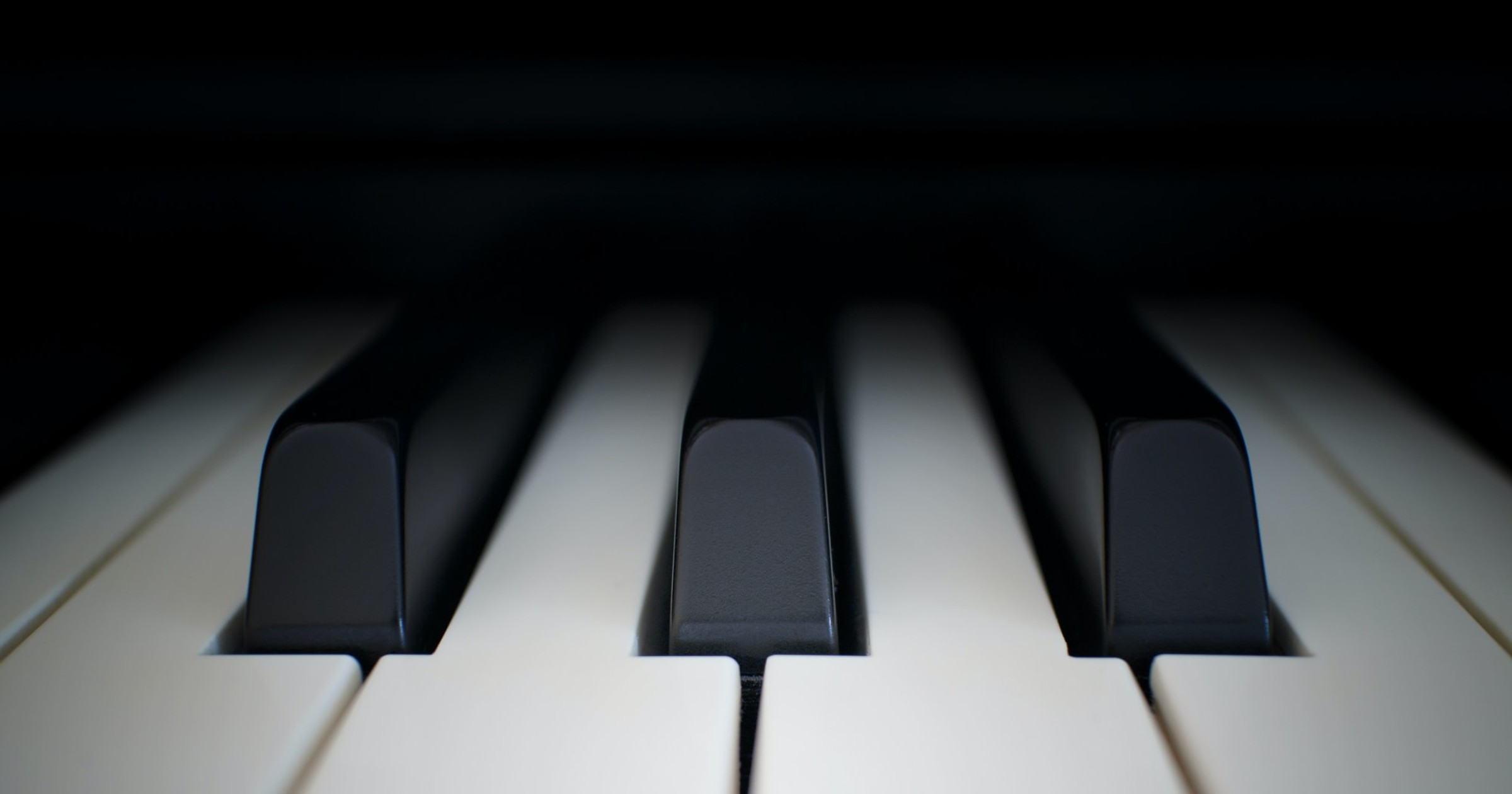Established in 1994, Teatro Grattacielo’s mission has always centered spotlighting often-overlooked Italian operas between the years of the 1890’s and the 1930’s, with the hope of reintroducing them to the public’s consciousness. On Sept. 28, 2019, the company kicked off its 25th season with an anniversary celebration, presenting Ruggero Leoncavallo’s “La Boheme,” Alfredo Catalani’s “Loreley,” and Ottorino Respighi’s “The Sleeping Beauty.”
The chosen works for this trilogy gave opera goers a chance to simply enjoy rarely heard, traditional arias sung by an array of talented emerging and professional singers. The ensemble exuded passionate singing and an atmosphere of appreciation with lesser-known repertoire throughout the night which was a refreshing experience.
La Bohème
First up on the concert “La Bohème” by Leoncavallo, a work that premiered just a year after Puccini’s more famous version of the work. Legend has it that Puccini, ever the competitor, was motivated to compose the work once he caught wind of Leoncavallo’s own interest in the subject matter. While Puccini’s work is arguably the most popular to ever be conceived and performed, Leoncavallo’s realizes the story through music that with a more upbeat and light-hearted energy.
Conductor Israel Gursky gave an electric performance that showcased the talented orchestra and chorus members.
The singers enthusiastically followed their scores and sang with playfulness and joy. Alessio Borraggine sang the role of Marcello with delight and tenacity. His voice carried across the theater with purpose and connection to his character. During the love duet he shared with Susanne Burgess as Mimi, both singers reveled in the special moment. Burgess blossomed into her warm timbre, while she sang and radiated a genuine affection that uplifted the audience.
Stefanos Koroneos sang the role of Schaunard with adeptness and enthusiasm. He visually personified a leadership quality within the ensemble cast that also played to his character’s benefit by creating a Schaunard that was secure in his role as a master charmer. The exciting qualities of Koroneos voice were heard best in this role.
Mezzo-soprano Emily Hughes sang the role of Musette with a unique combination of precision and wonder. She highlighted best the energy that Leoncavallo intended for his version of “La Bohème” and was a delight to see perform.
Catalani & Respighi
Next up was Catalani’s “Loreley.” While the composer will always be remembered best for “La Wally,” “Loreley” is actually his second most recognized opera is a reworking of his earlier opera “Elda.”
The arias performed here featured tenor Jeremy Brauner as Walter, soprano Ashley Bell as Anna di Rehberg and soprano Kirsten Chambers as Loreley. All three were beautifully showcased, but Chambers might be considered the highlight of the night by audience response and overall performance. Her voice was radiant and her engaging charisma enthralled audience members.
Respighi’s “The Sleeping Beauty” or “La bella dormente nel bosco” was the final opera of the trilogy. Respighi labored over this work over the course of his life with two versions premiered in 1922 and 1934 respectively and a latter version to appear posthumously.
Tenor Thomas Massey sang the role of the Prince with gusto and grace. His voice sounded effortless as it carried into the theater and realized its full potential best when evenly and fully singing each phrase. Massey’s gentle charisma was the perfect fit in the ensemble’s dynamic.
Soprano Joanna Mongiardo as La Fatta Azzurra gave a stunning performance. She glowed while singing and left a strong impression that set her apart from the rest of the ensemble. Mongiardo’s confidence and joy was a special highlight of this closing portion.
Jennifer Pyron, OperaWire
For the past quarter century, Teatro Grattacielo has been presenting concert performances of forgotten and underperformed operas written in the verismo style. On September 28 in the John Jay College’s Gerald Lynch Theatre, the company presented a gala concert featuring excerpts from three operas.
First up was Act I from Ruggero Leoncavallo’s La Boheme. There are many contrasts with Giacomo Puccini’s much more famous opera based on this story. Here, Mimi and Rodolfo have relatively minor roles, and Rodolfo is a baritone. The lead characters in Leoncavallo’s version are Marcello (a tenor) and Musette (a mezzo). And the character of Schaunard, sung by a baritone in both versions, takes on much greater prominence in the Leoncavallo opera. While Leoncavallo’s effort is artistically weaker than Puccini’s, it is still an entertaining work, well worth hearing. There is some exquisite orchestration, here well represented by music director Israel Gursky and the orchestra. Primarily, Act I is written as an extended vocal ensemble, with a cast of ten singers. The very strong vocal ensemble included soprano Susanne Burgess, mezzos Emily Hughes and Anna Tonna, tenors Alessio Borraggine, Ronald Naldi and Jordon Weatherstone Pitts, baritones Stefanos Koroneos, Suchan Kim and Robert Balonek, and bass Stefano De Peppo. Stellar performances were offered by all, but of particular note were those of Borraggine, who carried us away with Marcello’s love; Hughes, who made a delightful and coquettish Musette; Burgess, who gave a most satisfying account of Mimì’s aria; Koroneos, who delivered a strong interpretation of Schaunard; and De Peppo, whose comic portrayal of Barbemuche left one wishing his character had been given more lines.
Next up were three arias from Alfredo Catalani’s Loreley. These included Act III’s aria in which the cad Walter, here dramatically portrayed by tenor Jeremy Brauner, awakes from a faint to see the ghost of Loreley. Next up was Act II’s aria for Anna as she realizes that her impending marriage to Walter is a fruitless sham. Soprano Ashley Bell gave a poignant, vulnerable performance of the embittered Anna. The set concluded with Loreley’s Act I aria, in which she laments the loss of her virginity to Walter, and in which she ultimately throws herself into the Rhine and to her death. Soprano Kirsten Chambers showed great finesse in covering the range of emotion required in this aria.
The concluding work on this concert was Act III from Ottorino Respighi’s La bella dormente nel bosco (The Sleeping Beauty). Originally written for puppets with operatic singers and an orchestra, the opera was clearly intended to be in the classic verismo operatic style and simultaneously a sarcastic look at America of the 1920s. This listener found it to be a frustrating and confused compositional effort. It had excellent comic moments and arias of great emotional feeling, but much of the sarcasm fell flat. The cast gave it their all, but the musical effect was very surface. The singers included Balonek, Tonna, Koroneos, Burgess and Kim from the Leoncavallo, plus sopranos Sarah Johnson and Johanna Mongiardo, all of whom gave fine performances. The standout, however, was tenor Thomas Massey, who sang his featured role with heartfelt ardor and suave elegance.
Throughout the evening the orchestra and chorus provided solid accompaniment under Israel Gursky’s confident leadership. One hopes that Teatro Grattacielo will thrive for many years to come, and one wishes they offered more productions each season.
Arlo McKinnon, Opera News
Fans of Italian opera were spoiled for choice on Saturday evening: at the Met, the Netrebko-crowned Macbeth took to the stage for its second performance of the season, while just a few blocks away, at the Gerald Lynch Theater, Teatro Grattacielo presented its 25th Anniversary Gala Concert. For those who tire of the perpetual cycles of Macbeths, Turandots, and Traviatas on opera’s main stages, Teatro Grattacielo was the perfect ticket, offering a fresh and lively evening of overlooked gems from the Italian giovane scuola.
Act I of La Bohème was on the program—but not Puccini’s canonical version. Teatro Grattacielo instead brought us Leoncavallo’s rarely sung but equally deserving version, alongside selections from Catalani’s Loreley and the third act of Respighi’s La bella dormente nel bosco, all in concert performance, with symphony orchestra and small chorus.
Compared to Puccini’s version, Act I of Leoncavallo’s La Bohème is a non-stop party: it begins with the Bohemians already letting loose at the Café Momus and culminates in a drunken game of billiards (the loser settles the bill, of course). Mimi and Rodolfo are already an item, and Musette is a new arrival on the scene, instantly catching the eye of Marcello, who, in this case, is the romantic lead.
Indeed, Mimi and Rodolfo are but a side show in Leoncavallo’s version, the boy-meets-girl love duet at the end of the act given to Marcello and Musette. Mimi is not the timid, paling waif of Puccini’s version; she is already “one of the boys”, singing raucous, cabaret-like ditties for her fellow Bohemians. Her music typifies the playful, episodic aesthetic of Leoncavallo’s score, which, next to Puccini’s score, can occasionally seem erratic and annoyingly upbeat.
If Leoncavallo’s La Bohème feels like Puccini’s version on caffeine, then Catalani’s Loreley feels like someone strung together the offcuts from Wagner’s Götterdämmerung: there is a dwarf-king called Alberich, some water nymphs, a mysterious oath, and a Rhine-side love triangle. Catalani’s music also takes on a Wagnerian heaviness, with long, through-composed monologues pervading his score (three of which, Loreley’s Act I “Ove son? Donde vengo”, Anna’s Act II “Amor celeste, ebbrezza e pena”, and Walter’s Act III “Ove sono? Che fu?”, were excerpted in this performance).
By contrast, Respighi’s Sleeping Beauty is very much a product of the jazz age, culminating in a swinging ragtime finale. Like Ravel’s L’Enfant et les sortilèges, which premiered just three years later, Respighi’s Sleeping Beauty uses pastiche and parody to construct a fantasy world that is nonetheless earnest in its emotional outlook. The third act of this charming opera is short but lush, providing the evening’s performance with a soaring fairy-tale ending.
Between these three excerpts, there were some 18 different soloists onstage, singing 21 different roles, creating something of an ensemble cast. And the performances were, on the whole, energized and impassioned, showcasing a delightful mix of emerging and established talent, and making a powerful case for the reintegration of these largely forgotten works into the performing repertoire.
Stefanos Koroneos brought plenty of steel to the role of Schaunard: his quicksilver high register added a touch of excitement to Leoncavallo’s billiards game, while his wheeler-dealer quasi-recitativo had a persuasive lilt during as he sweet-talked the bartender, Gaudenzio (Ronald Naldi, bright-voiced, with a characterful high patter.)
Koroneos also made a cameo appearance in the Respighi, bringing plenty of laughs as Mr. Dollar Cheque, a flamboyant, filthy-rich American excursionist who speaks only in piginized, phrasebook Italian (think B. F. Pinkerton, but even less subtle).
Also straddling the Leoncavallo and the Respighi was Susanne Burgess, whose star turns as Mimi and the Princess could not have been more different. She leaned into the burlesque of Leoncavallo’s Mimi, lending a harder edge to her middle and low registers and a cheeky spin to her crisp soubrette top. By contrast, her Princess was all lyric splendor, with a rich, even legato, and a more measured tone.
Thomas Massey’s Prince, however, was initially a little overcooked, and it would have been nice to hear a tad more sweetness and restraint in the sound at the beginning of the act. However, as Massey warmed into the role, he struck a finer balance between lover and hero, finding a lightness and an elegance in his duet with the Princess.
The highlight of the Respighi was Robert Balonek’s woodcutter, whose refreshingly down-to-earth performance was matched with a round, full-bodied sound and a nuanced sense of line. His aria showcased, on the one hand, sparkling high notes and a slightly gruff lower register smoothly integrated with his clear, tempered middle.
Balonek also lent his voice to the role of Colline in the Leoncavallo; along with Suchan Kim’s Rodolfo, Anna Tonna’s Eufemia (Schaunard’s girlfriend), and Stephano de Peppo’s Barbemuche (the stranger who eventually pays for the meal), he formed part of a tight but colorful ensemble of rowdy Bohemians. It was fitting that the Bohemians were cast with such a diverse and complementary range of voices, with Tonna’s vivid, knife-like chest voice and de Peppo’s rugged growl contrasting with the more strident voices of Balonek and Kim.
Topping all this off was Alessio Borraggine’s ravishing Marcello, his buoyant lyric tenor deftly transmuting Marcello the waggish eccentric and into Marcello the suave amorist as the act progressed. The lucidity and focus of his sound stuck out within Leoncavallo’s complex ensembles, Borraggine performing with infectious vivacity throughout.
Borraggine’s sound gained a freedom and a luster in the closing love duet, a bloom sadly not met by Emily Hughes’ more tentative Musette. A few coordination issues early on between Hughes and Maestro Israel Gursky put her Musette off to a rocky start; however, she found her stride somewhat over the course of the act, revealing a peppy, supple mezzo.
Technical issues also plagued Jeremy Brauner and Ashley Bell (singing Walter’s aria and Anna’s aria from Loreley respectively), who seemed to battle against Catalani’s heavy orchestrations and long, swelling phrases. Both singers possessed clear, resonant voices; however, both seemed to strain with the weight of their roles, their higher registers often sounding tight, even forced.
More appropriately cast was Kirsten Chambers (singing Loreley’s colossal Act I aria), whose voice, at once muscular and sumptuous, rose to meet the demands of Catalani’s writing. Chambers—who is covering Marie in the Met’s upcoming Wozzeck—proved herself a striking actress, effortlessly conjuring up the spuming and swelling of the Rhine through her magnetic onstage presence.
Of the smaller roles, Joanna Mongiardo’s Fatta Azzura (in the Respighi) and Jordan Weatherston Pitts’ Becero (in the Leoncavallo) were unexpected scene-stealers, proving, with just a few lines of music, that their voices were grossly underutilized in this performance. Mongiardo adroitly navigated Respighi’s coloratura with strength and verve, while Weatherston Pitts’ cool, bracing sound immediately caught the ear amidst the din of the Café Momus.
Under Gursky’s baton, the strings were a tad sluggish, and experienced some tuning issues, especially in the Leoncavallo; however, the brass brought plenty of punch to the blaring chords of the Catalani, and the woodwind solos of the Respighi were slick and vibrant. Although both the strings and the chorus could have benefited from stronger numbers, Gursky effectively managed the blend and balance of the orchestra, bolstering the vocal lines while bringing out some of the more colorful moments of verismo orchestration.
Ultimately, it was wonderful to hear these three (sadly neglected) works receive such a joyous and enthusiastic performance. Such experiences serve as a reminder of the importance of these smaller, more fleet-of-foot companies to New York’s cultural landscape—as vehicles for lesser-known or emerging artists, as advocates for lesser-known repertoire, and as purveyors of intimate, unexpectedly exhilarating musical encounters.
Callum John Blackmore, Parterre Box








